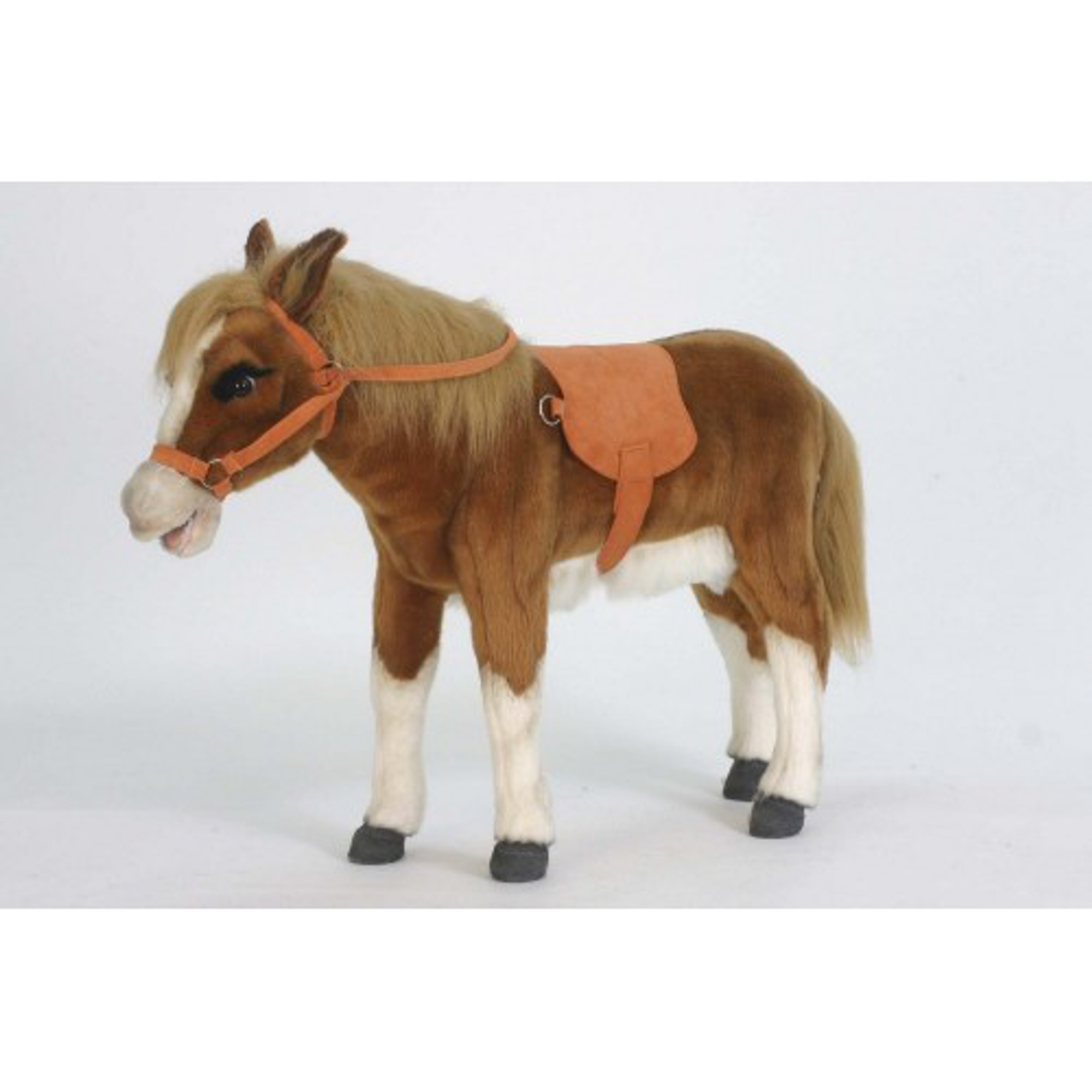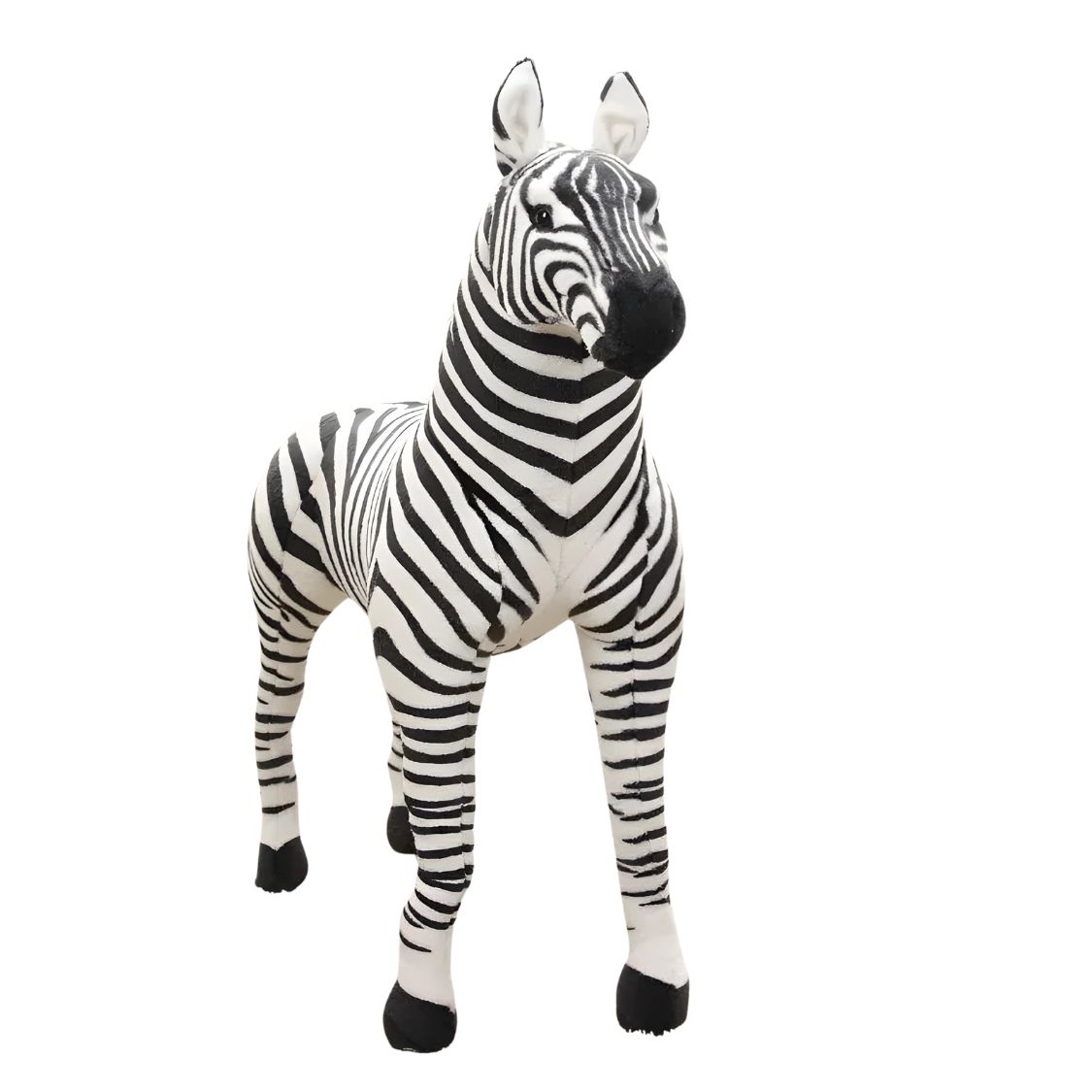How To Ride A Stuffed Animal: A Fun And Imaginative Guide For Kids And Adults
Apr 01 2025
Have you ever wondered how to ride a stuffed animal? While it may sound like a whimsical idea, engaging in imaginative play with your favorite stuffed toys can be an exciting and creative way to pass the time. Whether you're a child exploring a world of adventure or an adult rediscovering your inner child, riding a stuffed animal is a fantastic way to spark creativity and have fun. In this article, we'll guide you through the steps to make the most of this playful activity.
Imaginative play is essential for both children and adults. It helps children develop cognitive and emotional skills while encouraging adults to reconnect with their playful side. By learning how to ride a stuffed animal, you can create a world where anything is possible, from galloping across the prairie on a stuffed horse to soaring through the skies on a mythical dragon.
This guide will explore the steps, tips, and creative ideas to make riding your stuffed animal an unforgettable experience. So, let's dive in and discover the magic of playful creativity!
Read also:Meat Moves The Ultimate Guide To Understanding And Mastering The Art Of Meat Movement
Table of Contents
- Introduction
- Benefits of Riding Stuffed Animals
- Preparing Your Stuffed Animal for Adventure
- Safety Tips for Imaginative Play
- Creative Ideas for Riding Stuffed Animals
- Age-Appropriate Activities
- Long-Term Engagement with Stuffed Animals
- Educational Value of Imaginative Play
- Parental Involvement in Playtime
- Conclusion
Benefits of Riding Stuffed Animals
Learning how to ride a stuffed animal offers numerous benefits for both children and adults. For children, imaginative play enhances creativity, problem-solving skills, and emotional development. Adults can benefit from reducing stress and fostering a sense of joy through playful activities.
Research shows that imaginative play can improve:
- Cognitive development
- Social skills
- Emotional regulation
- Motor skills
According to a study published in the Journal of Child Psychology and Psychiatry, children who engage in imaginative play show better adaptability and resilience in real-life situations.
How Imaginative Play Builds Confidence
When children pretend to ride a stuffed animal, they often take on roles that empower them, such as being a knight or an astronaut. This role-playing boosts self-esteem and encourages them to explore new ideas and scenarios.
Preparing Your Stuffed Animal for Adventure
Before you start riding your stuffed animal, it's essential to prepare both your toy and your environment. Here's a step-by-step guide to ensure a smooth and enjoyable experience:
- Choose a sturdy stuffed animal that can support your weight (or at least the weight of your imagination).
- Check for any loose parts or tears that might need repair.
- Create a safe space for your adventure, free from sharp objects or hazards.
For younger children, parental supervision is crucial to ensure safety during playtime.
Read also:Mom Naughty Understanding The Phenomenon And Its Implications
Selecting the Perfect Stuffed Animal
Not all stuffed animals are created equal when it comes to riding. Look for plush toys with strong limbs and durable stitching. Animals like horses, unicorns, and dragons are popular choices for this type of imaginative play.
Safety Tips for Imaginative Play
While riding a stuffed animal is a fun activity, safety should always be a priority. Here are some tips to keep your playtime accident-free:
- Ensure the stuffed animal is age-appropriate and free from small parts that could pose a choking hazard.
- Use soft mats or cushions to create a safe landing area.
- Set boundaries for play areas to avoid collisions with furniture or walls.
For older children, discuss the importance of respecting personal space and playing responsibly.
Teaching Responsibility Through Play
By incorporating safety rules into imaginative play, parents can teach children valuable lessons about responsibility and awareness. This approach helps them develop a sense of accountability while enjoying their activities.
Creative Ideas for Riding Stuffed Animals
Now that you're ready to embark on your adventure, here are some creative ideas to make your stuffed animal rides more exciting:
1. Gallop Across the Prairie
Pretend you're a cowboy or cowgirl riding a trusty steed across the open plains. Use blankets or scarves as reins and gallop around the room.
2. Soar Through the Skies
Transform your stuffed dragon into a flying companion. Spread your arms like wings and imagine yourself soaring above the clouds.
3. Explore the Deep Blue Sea
Turn your stuffed sea creature into a submarine or ship. Use pillows as waves and embark on a treasure-hunting expedition.
Age-Appropriate Activities
Imaginative play can be tailored to suit different age groups. Here's how you can adjust activities based on age:
For Toddlers (2-4 years)
Toddlers enjoy simple, repetitive activities. Encourage them to "ride" their stuffed animals by sitting on them and pretending to go on short trips around the house.
For School-Age Children (5-12 years)
Older children can engage in more complex scenarios, such as creating storylines or building obstacle courses for their stuffed animals to navigate.
For Adults
Adults can embrace their inner child by participating in playful activities with their children or friends. This shared experience strengthens bonds and creates lasting memories.
Long-Term Engagement with Stuffed Animals
To keep the excitement alive, consider incorporating stuffed animal rides into your daily or weekly routines. Here are some ideas:
- Create a "Stuffed Animal Adventure Journal" to document your imaginative journeys.
- Host a stuffed animal-themed party where guests can bring their favorite toys and participate in group activities.
- Introduce new stuffed animals periodically to keep the play experience fresh and exciting.
By maintaining a sense of wonder and curiosity, you can ensure that your stuffed animal adventures remain a cherished part of your life.
Educational Value of Imaginative Play
Imaginative play, including riding stuffed animals, has significant educational value. It encourages children to:
- Develop problem-solving skills by creating solutions to imaginary challenges.
- Enhance language skills through storytelling and role-playing.
- Practice empathy by understanding the perspectives of their stuffed animal "companions."
Teachers and parents can leverage this type of play to reinforce learning objectives in a fun and engaging way.
Connecting Imaginative Play to Curriculum
For example, a lesson on dinosaurs can be brought to life by having children ride stuffed dinosaurs and explore prehistoric landscapes. This hands-on approach makes learning more memorable and enjoyable.
Parental Involvement in Playtime
Parents play a crucial role in fostering imaginative play. By actively participating in their children's activities, parents can:
- Build stronger relationships with their children.
- Encourage creativity and curiosity.
- Provide guidance and support during playtime.
Studies show that children whose parents engage in play activities with them tend to have better social and emotional outcomes.
Tips for Parents
Here are some tips for parents looking to enhance their involvement in imaginative play:
- Set aside dedicated time for play each day.
- Follow your child's lead and allow them to direct the play scenario.
- Praise their creativity and efforts to boost their confidence.
Conclusion
Learning how to ride a stuffed animal is more than just a playful activity; it's an opportunity to nurture creativity, develop essential skills, and create lasting memories. Whether you're a child exploring new worlds or an adult rediscovering the joys of play, this imaginative journey can bring endless fun and fulfillment.
We encourage you to share your experiences and ideas in the comments below. Don't forget to explore other articles on our site for more tips and inspiration. Together, let's keep the magic of play alive!


